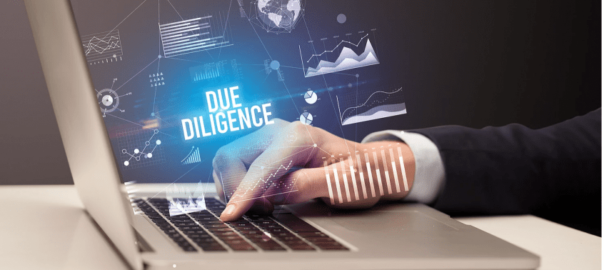What Are Due Diligence Data Rooms? A Comprehensive Guide 2025

In today’s fast-paced business environment, mergers, acquisitions, and partnerships are commonplace. However, these transactions require a high level of transparency, security, and organization to ensure success. This is where due diligence data rooms come into play. Whether you’re a business owner, investor, or legal professional, understanding what due diligence data rooms are and how they function can significantly streamline complex processes. In this article, we’ll explore the concept of due diligence data rooms, their importance, key features, and how they can benefit your business.
What Are Due Diligence Data Rooms?
A due diligence data room is a secure online platform used to store, manage, and share confidential documents during critical business transactions. Think of it as a digital vault where sensitive information is stored and accessed only by authorized parties. These virtual data rooms (VDRs) are commonly used during mergers and acquisitions (M&A), fundraising, IPOs, and legal proceedings.
The primary purpose of a due diligence data room is to facilitate the due diligence process. Due diligence is the investigation or audit of a potential investment or product to confirm all facts, such as reviewing financial records, legal documents, and operational details. A data room ensures that this process is efficient, secure, and transparent.
Why Are Due Diligence Data Rooms Important?
- Enhanced Security: One of the biggest concerns during sensitive transactions is data security. Due diligence data rooms use advanced encryption, multi-factor authentication, and watermarks to protect confidential information from unauthorized access or leaks.
- Streamlined Collaboration: Multiple parties, such as buyers, sellers, lawyers, and investors, often need to review the same documents. A data room allows seamless collaboration, ensuring everyone has access to the latest version of files.
- Time Efficiency: Traditional due diligence processes involve physical document sharing, which can be time-consuming and prone to errors. Virtual data rooms eliminate these inefficiencies by providing instant access to documents from anywhere in the world.
- Audit Trail: Data rooms keep track of all activities, including who accessed which documents and when. This creates a transparent audit trail, which is crucial for accountability and compliance.
Key Features of Due Diligence Data Rooms
Not all data rooms are created equal. Here are some essential features to look for when choosing a due diligence data room:
- Document Management: A good data room allows you to organize files into folders, set permissions, and control who can view, edit, or download documents.
- User Permissions: You can grant or restrict access to specific users, ensuring that sensitive information is only available to authorized individuals.
- Q&A Section: Many data rooms include a Q&A feature, allowing users to ask questions and receive answers directly within the platform.
- Activity Tracking: Real-time tracking of user activity helps you monitor who is accessing what and when.
- Secure Sharing: Features like watermarking, expiration dates for document access, and secure links ensure that your data remains protected.
Benefits of Using Due Diligence Data Rooms
- Improved Transparency: All parties involved in a transaction have access to the same information, reducing misunderstandings and disputes.
- Cost Savings: While setting up a data room may seem like an additional expense, it can save you money in the long run by reducing the time and resources spent on manual processes.
- Global Accessibility: With a virtual data room, stakeholders from different parts of the world can access documents without the need for physical meetings.
- Faster Decision-Making: Quick access to information speeds up the due diligence process, enabling faster decision-making and deal closures.
How to Choose the Right Due Diligence Data Room
With so many options available, selecting the right data room can be overwhelming. Here are some factors to consider:
- Security: Ensure the platform complies with international security standards like ISO 27001 and GDPR.
- Ease of Use: The interface should be user-friendly, even for non-technical users.
- Customer Support: Look for providers that offer 24/7 customer support to address any issues promptly.
- Pricing: Compare pricing plans and choose one that fits your budget without compromising on essential features.
Real-World Applications of Due Diligence Data Rooms
- Mergers and Acquisitions (M&A): During M&A transactions, buyers need to review extensive financial and legal documents. A data room simplifies this process by centralizing all relevant information.
- Fundraising: Startups and businesses seeking investment can use data rooms to share business plans, financial projections, and other critical documents with potential investors.
- Legal Proceedings: Law firms often use data rooms to securely share case-related documents with clients and opposing counsel.
- Real Estate Transactions: Property deals involve a lot of paperwork, from title deeds to inspection reports. A data room ensures all documents are easily accessible and secure.
The Future of Due Diligence Data Rooms
As technology continues to evolve, so will due diligence data rooms. We can expect to see more advanced features like artificial intelligence (AI) for document analysis, enhanced collaboration tools, and even greater security measures. The adoption of blockchain technology may also play a role in further securing data rooms.
Conclusion
Due diligence data rooms have revolutionized the way businesses handle sensitive transactions. They offer a secure, efficient, and transparent way to manage critical documents, making them indispensable in today’s digital age. Whether you’re involved in an M&A deal, fundraising, or legal proceedings, a due diligence data room can save you time, money, and stress.
By understanding the importance and functionality of these platforms, you can make informed decisions that benefit your business. So, the next time you’re faced with a complex transaction, consider leveraging the power of a due diligence data room to streamline the process.
